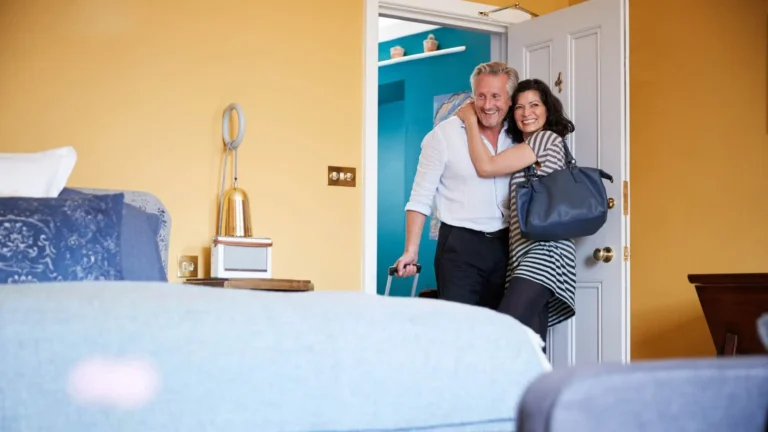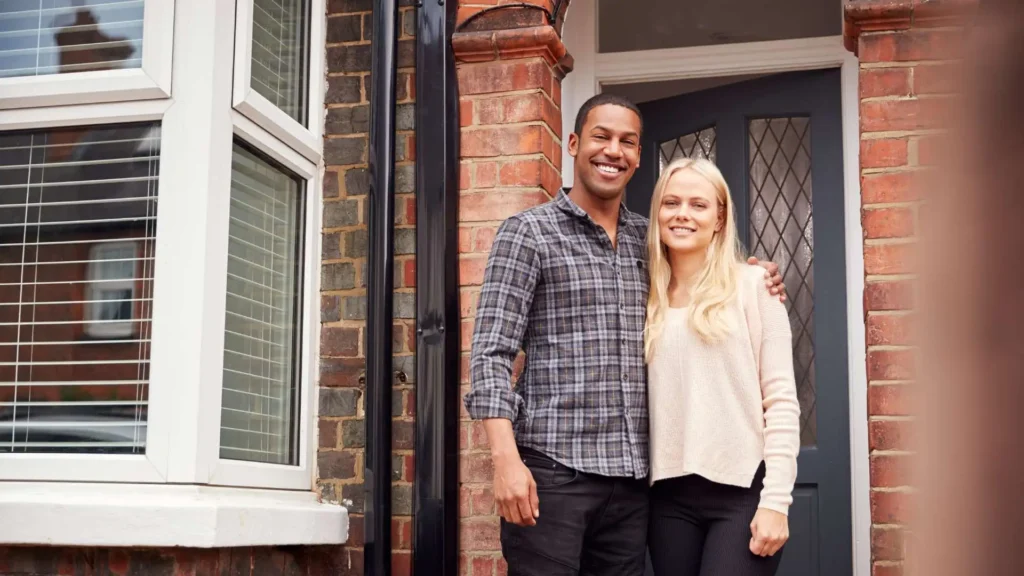Table of Contents
For families, lodging is the budget lever that makes or breaks a trip. Book the wrong kind of stay and you pay twice: once in dollars, again in stress. The headline question—“Is Airbnb cheaper than a hotel?”—has a deceptively simple ring to it. The reality for families is layered: nightly rates, fees, food, transport, safety, sleep quality, cancellation risk, loyalty value, even how old your kids are. This guide on airbnb vs hotel gives you a clear cost framework, real-world scenarios, and a practical decision system so you can pick the option that maximizes value without compromising comfort.
How to Compare Costs Like a Pro
Before you run price searches, define your model. Comparing a $200 Airbnb to a $220 hotel is meaningless without context. Use this framework:
The Family Value Equation
Total Trip Value = (Space + Sleep Quality + Food Flexibility + Location Convenience + Safety + Amenities + Support) ÷ Total Cost
Price matters, but what you get for that price matters more. For families, the biggest value drivers are space, sleep quality, kitchen access, location, and predictable support. Read about How Beem Pass Makes Group Travel Easier—Split Costs and Handle Emergencies.
The Cost Buckets You Must Model
- Lodging price: nightly base, taxes, mandatory fees.
- Platform and cleaning fees: Airbnb service fees, cleaning fees, hotel resort or amenity fees.
- Food: groceries vs dining out, hotel breakfast inclusion, kid meal policies.
- Transport: parking, shuttles, rideshares, metro passes, the “suburban Airbnb penalty.”
- Time and chores: laundry, dishes, trash, check-in friction; time has a real cost with kids.
- Insurance and cancellation: refundable vs non-refundable rates, platform protections.
- Loyalty value: points earned, free nights, elite benefits that remove other costs.
What You Actually Pay: Cost Components in Detail
Airbnb Cost Stack
- Nightly rate (often weekly or monthly discounts).
- Cleaning fee (a meaningful fixed cost on short stays).
- Service fee (typically a percentage of subtotal).
- Occupancy or local lodging taxes.
- Extra guest fees beyond a base occupancy.
- Utility caps in monthly rentals, sometimes with overage charges.
- Deposit or hold, tying up cash flow.
Hotel Cost Stack
- Nightly rate (dynamic; family packages matter).
- Taxes and resort or destination fees.
- Parking or valet.
- Breakfast and kid policy (kids eat free can be huge).
- Rollaway or crib fees, sometimes waived with status.
- Late checkout or guaranteed connecting rooms often tied to status.
Short Stays vs Long Stays: Where Each Option Wins
Short Stays (1–4 nights)
Airbnbs suffer from fixed cleaning and service fees spread over few nights. Hotels often win, especially when breakfast, shuttles, and loyalty perks are included. Here’s more on How to Save Money on Airbnb.
Medium Stays (5–13 nights)
Closer call. If you’ll cook breakfast and a few dinners, the Airbnb kitchen can erase a big chunk of dining costs. Hotels with suites and kitchenettes compete here, especially in suburban locations.
Long Stays (14–30+ nights)
Airbnbs and serviced apartments usually dominate on cost and livability. Monthly discounts, laundry, and kitchen access compound savings. Extended-stay hotels can compete if you have loyalty status or score long-stay rates.
Family Composition Changes the Math
Infants and Toddlers
- The value of a separate bedroom for naps is high.
- Kitchens reduce chaos and cost for milk, purees, and snacks.
- Cribs and childproofing: Hotels can guarantee cribs; Airbnbs vary.
School-Age Kids
- Pools, kids clubs, and breakfast buffets tilt toward hotels on short breaks.
- Space for play and homework favors 1–2 bedroom Airbnbs on longer trips.
Teens
- Extra bathrooms are gold. Airbnb multi-bedroom units often win.
- Central locations reduce spending on late-night rideshares.
Larger Families (5–7)
Two hotel rooms or a suite versus a 2–3 bedroom Airbnb. Airbnbs often win on space per dollar, but verify bed count and real capacity.
Read: How to Get an Airbnb Discount
Food Economics: Kitchen vs Breakfast Inclusion
A simple, conservative model for a family of four:
- Hotel with hot breakfast: effective savings of roughly $40–$70 per day compared to eating out.
- Airbnb kitchen: cooking breakfast and two dinners per week can save $200–$300 per week versus dining out every meal. Grocery prices vary by city; tourist districts cost more.
Reality check: Families rarely cook every meal. The sweet spot is breakfast daily, simple dinners several times a week, and selective dining out.
Location and Transport: The “Suburban Airbnb Penalty”
Many Airbnbs sit outside the core. Savings on the nightly rate can evaporate through:
- Daily rideshares or parking.
- Longer transit times with little kids.
- Early park or tour start times and making shuttles valuable.
Hotels in core areas often include shuttles to attractions, walkable access, and lower daily friction. Pricier nightly, cheaper overall.
Cleaning, Chores, and “Operational Load”
With kids, housekeeping is not a luxury; it’s a sanity saver. At Airbnbs you handle trash, dishes, laundry, and sometimes mid-stay cleaning at extra cost. Hotels absorb this load. Decide what your time and energy are worth on vacation.
Safety, Support, and “Who Helps When Things Break”
- Hotels: Staffed front desk, on-call maintenance, fire and safety compliance, established security. Predictable escalation path.
- Airbnb: Support depends on host responsiveness. Superhosts with consistent recent reviews reduce risk. Have a backup plan if a listing cancels or is misrepresented.
Loyalty Math: When Points Tip the Scales
If you collect hotel points:
- Free nights on award stays remove cash lodging costs entirely.
- Fifth night free or similar promos on points stretch value for weeklong trips.
- Status often gives free breakfast, lounge access, upgrades, late checkout, and guaranteed cribs—costs you would otherwise pay.
If you do not collect points, factor this section as zero in your model; one-off travelers may find Airbnb wins more often. Here’s more information on How to Build a Vacation Fund Fast: Top 10 Smart Travel Savings Tips.
Alternatives Worth Pricing Every Time
Aparthotels and Suite-Style Hotels
Apartments with hotel services. Kitchenettes, housekeeping, laundry, sometimes breakfast. Often the true “best of both worlds” for families.
Extended-Stay Brands
Residence-style hotels with full kitchens and laundry rooms. Weekly housekeeping, parking, sometimes free light dinner nights.
Family-Friendly Hostels
Private family rooms with shared kitchens and lounges in central areas, especially in Europe. Clean, social, low cost.
Home Exchange / Trusted Housesitters
Space for near-zero lodging cost, but requires flexibility and vetting.
Quick Cost Comparison, Short vs Long Stays
| Stay Length | Typical Winner | Why |
|---|---|---|
| 1–3 nights | Hotel | Cleaning and service fees inflate Airbnb; breakfast and shuttles help |
| 4–6 nights | It depends | Kitchen savings vs hotel breakfast, location and transport decide |
| 7–13 nights | Slight Airbnb edge | Space, laundry, partial cooking offset hotel advantages |
| 14–30+ nights | Airbnb/Serviced Apt | Monthly discounts, full kitchen, laundry, lower operational load |
Decision Matrix: Score Your Family’s Priorities
Give each item a score from 1 (not important) to 5 (critical), then compare which column wins for your trip.
| Factor | Airbnb tends to win if… | Hotel tends to win if… |
| Space | You need 2–3 bedrooms and a living room | You can manage two connecting rooms |
| Food | You will actually cook most breakfasts and some dinners | Hot breakfast for 4 saves real money and time |
| Location | You’re fine with residential neighborhoods | You want walkable access and shuttles |
| Support | You can handle light chores and self-check-in | You want daily housekeeping and a front desk |
| Safety | You’re comfortable vetting hosts and listings | You want standardized, regulated security |
| Loyalty | You don’t collect points | Your points/elite perks offset cash costs |
If Airbnb wins at least four factors, it’s likely your better value. If hotels win four or more, they’re your best bet.
What Regulations Mean for Your Bill
Airbnb availability and pricing are shaped by local rules: caps on short-term rentals, stricter licensing, higher occupancy taxes, and minimum nights. These can nudge family stays toward hotels in high-regulation cities. The opposite is true in suburban or resort areas with abundant legal supply.
Contracts, Cancellation, and Exposure to Risk
- Hotels: free cancellation windows are common; prepay for a slightly lower rate if plans are firm.
- Airbnb: cancellation policies vary from flexible to strict. Read the policy and message the host for clarity. On long stays, confirm utility caps, cleaning cadence, and any HOA rules to avoid surprise charges.
For families, trip plans change. The cost of a strict policy can exceed any nightly savings.
Accessibility and Neurodivergent-Friendly Considerations
- Airbnb: verify elevator access, bathroom layout, step-free entry, white-noise friendly neighborhood. Ask hosts for detailed photos.
- Hotels: can guarantee ADA rooms, quiet floors, mini-fridges for meds, and blackout curtains. Predictability helps kids with sensory needs.
The cheapest option is the one that supports everyone’s comfort and sleep.
Sleep Quality: The Hidden ROI
Kids’ sleep equals parental sanity. Multi-bedroom Airbnbs lower bedtime friction and early-morning wakeups. Hotels deliver predictable bedding, blackout curtains, and climate control. Choose the option that reliably produces good sleep; it affects your whole budget through mood, pace, and decision quality.
Hybrid Strategies That Often Win
- Split stay: two to three nights in a hotel for arrival and early mornings, then a week in an Airbnb for space and cooking.
- Aparthotel: suite with kitchenette mid-trip to reset laundry and meals.
- Points + Cash: free hotel nights for city hubs, Airbnb for countryside week.
- Two families, one house: share a large Airbnb and split costs; ensure multiple bathrooms and sound separation.
A Practical Decision Flow You Can Use Right Now
- Stay length: under 4 nights, start with hotels; 14+ nights, start with Airbnb/serviced apartments.
- Space vs breakfast: if you need 2–3 bedrooms and a kitchen, favor Airbnb; if free breakfast and daily cleaning matter more, favor hotels.
- Location math: price the suburban Airbnb penalty (daily rideshares or parking) against a central hotel.
- Sleep and schedules: if naps and early nights are critical, lean to multiple bedrooms.
- Loyalty: if points or status unlock free nights or breakfast, apply that value.
- Cancellation: if plans may change, pick the most flexible policy even if nightly is higher.
- Negotiate: message Airbnb hosts and hotel managers before booking; take the best net offer.
How Beem Reduces the Real-World Friction
Family budgets strain under deposits, holds, and timing gaps between booking and payday. Beem closes those gaps so you can choose what’s best, not just what fits cash today.
- Everdraft: instant access for deposits, holds, or last-minute switches when a listing falls through.
- Budgeting: segment lodging, food, and transport; watch fees in real time so surprises don’t snowball.
- Send Money, Pay Later: split a big Airbnb with relatives or friends and settle cleanly.
- Identity protection: book across platforms with confidence; if a listing is fraudulent, you’ve got support on your side. Discover How to Save Money on Hotels.
FAQs About Airbnb vs Hotel
Are Airbnbs always cheaper for families?
No. For long stays with real cooking and laundry, Airbnbs often win decisively. For short city breaks, fixed cleaning and service fees push Airbnbs above hotels once you add breakfast, shuttles, and central location. The winner changes with length, location, and how your family actually uses the space.
How do I factor food honestly?
Model your real behavior. If you know you will cook breakfast daily and three simple dinners a week, assign a realistic grocery spend and subtract equivalent restaurant costs. If your family prefers to eat out, do not pretend that a kitchen saves money. It will not if you never use it.
What about safety for young kids?
Hotels deliver standardized safety, staffing, and maintenance. Airbnbs can be perfectly safe, but you must verify: locks, stair gates, window guards, neighborhood reviews, and host responsiveness. Ask for a walkthrough video if anything is unclear.
Do hotels ever beat Airbnbs on long stays?
Yes, sometimes. Extended-stay brands or aparthotels with aggressive monthly rates, laundry rooms, and kitchenettes can match or beat an Airbnb, especially in high-regulation cities or when loyalty status adds free breakfast and upgrades.
How do I avoid Airbnb horror stories?
Pick Superhosts with recent, detailed family reviews. Confirm check-in method, exact bed configuration, crib availability, and any utility caps. Require a documented mid-stay clean for month-long trips. Always have a Plan B hotel for night one in case of an access issue.
Can loyalty points really change the math that much?
Yes. Two free nights in a city like New York or San Diego may offset hundreds of dollars. Elite breakfast and lounge access can replace daily restaurant spend. If you travel even twice a year, a simple hotel strategy pays back quickly.
What’s the smartest hybrid plan for a two-week trip?
Fly into a centrally located hotel for 2–3 nights to beat jet lag, use shuttles, and hit early attractions. Move to a 1–2 bedroom Airbnb for 10–12 nights to cook, do laundry, and slow down. If you have points, use them on the city hotel segment.
Bottom Line
There is no universal winner. For short, urban trips, hotels often deliver lower total cost once you include breakfast, shuttles, and housekeeping. For longer, space-hungry stays, Airbnbs or serviced apartments usually provide better value through kitchens, laundry, and multiple bedrooms. The right answer for your family comes from modeling the whole picture: length, location, food habits, sleep needs, and loyalty value.
Do the math honestly, negotiate confidently, and keep a safety net. With Beem smoothing cash flow and protecting your bookings, you can pick the option that gives your family the best experience for the money, and enjoy the trip you planned, not just the room you booked. Use Beem to get beneficial insights on where to cut costs, where to spend and how to save your money with your personalized Budget Planner.
Download the Beem app here.














































